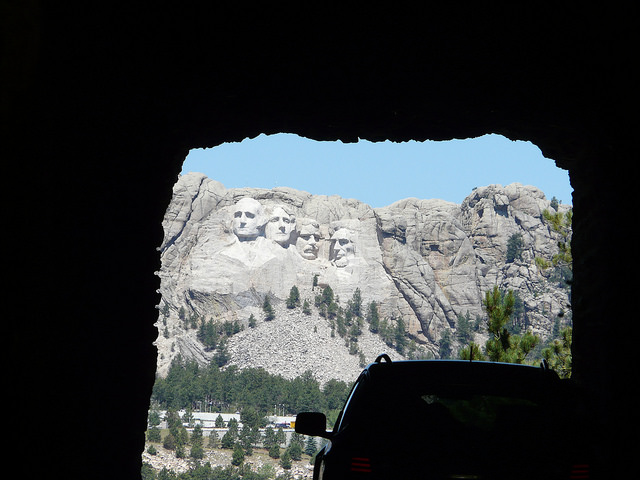Brooklyn
March 27, 2018
I was searching for a booklet called “Learn About the United States.” I knew it was red, and that its cover featured a collage of photographs of Mount Rushmore, the Constitution, and the US flag.
At 9:30 a.m. I was ready to go out and meet my friend at her place, but the booklet was nowhere to be found.
Fifteen minutes later, I was about to text my friend to say I was running late when the booklet resurfaced in my living room. An inscription on the bottom left corner of its cover guaranteed “quick civic lessons for the naturalization test.”
I took the B train to my friend’s place in Fort Greene. The car I boarded was packed with tired commuters in puffy jackets, baby strollers, and tourists. There was no place to sit, so I held onto an oily silver pole for the duration of the ride.
When I got to my friend’s, I washed my hands and drank some water. My friend’s naturalization test was two days away but she seemed calm. She made us coffee, grinding beans in a small, noisy, electrical device. The plants in her apartment looked healthy. I considered congratulating her for taking such good care of them, but decided against it.
We sat down with our coffee, which tasted like Brooklyn, and I began asking her random questions from the booklet: “Who lived in America before the Europeans arrived?” “When is the last day you can send in federal income tax forms?” “What does the President’s Cabinet do?”
When we got to the question “Who is the Father of Our Country?” I realized that today was my half brother’s fourth birthday. I sent a text message full of birthday emojis to my father, asking him to show it to my half-brother. Instead of replying, he called me. I ignored the call and swiped the messages app. I had nothing to say other than happy birthday, and my friend had a test to take.
Apart from one or two questions about checks and balances, my friend answered all questions correctly.
At 2 p.m. we stopped practicing and went out for lunch. The French café near her home was full of children with their nannies, so we moved on to the Russian restaurant down the street. It served kasha and cabbage stew.
I told my friend that kasha meant “difficult woman” in Hebrew. “Why woman?” she asked. I’d told her in the past that Hebrew adjectives were gender-specific, but she’d forgotten.
Around 4 p.m. I took the B train back to my neighborhood. This time the car was half empty. I could sit down without touching anything oily. I looked at my phone and noticed a text message from my father. My half-brother’s birthday was not until tomorrow.
I stopped by the grocery store on my way home and bought some vegetables. A fancy brand of almond butter was on sale, so I bought that too.
At home I looked for copies of my Green Card application in an attempt to understand how long it would be before I was eligible to apply for an American citizenship. I still had three and a half years to wait.
A post-it on my laptop reminded me to schedule an appointment with a dental hygienist, so I did. I also scheduled an appointment with an aesthetician to get my upper lip waxed. In Hebrew, women get their “moustache” waxed. Americans love euphemisms.
My options for the evening were a book launch of a former professor (she had titled her book “Unexceptional Politics,” which sounded promising) and the birthday dinner of a distant friend. I’d RSVPd for both, but stayed home.
Around 7 p.m. I approached the fridge, then paused to look at some of the photos attached to the door. A good number of them were taken at weddings where they were printed directly on magnets and distributed to guests when they left. One photo featured my dad and his third wife on their wedding day. I stared at the black circles under my father’s eyes for a long time, trying to remember what his face looked like when I was little. I should call him tomorrow, I thought, but I knew I wouldn’t.






